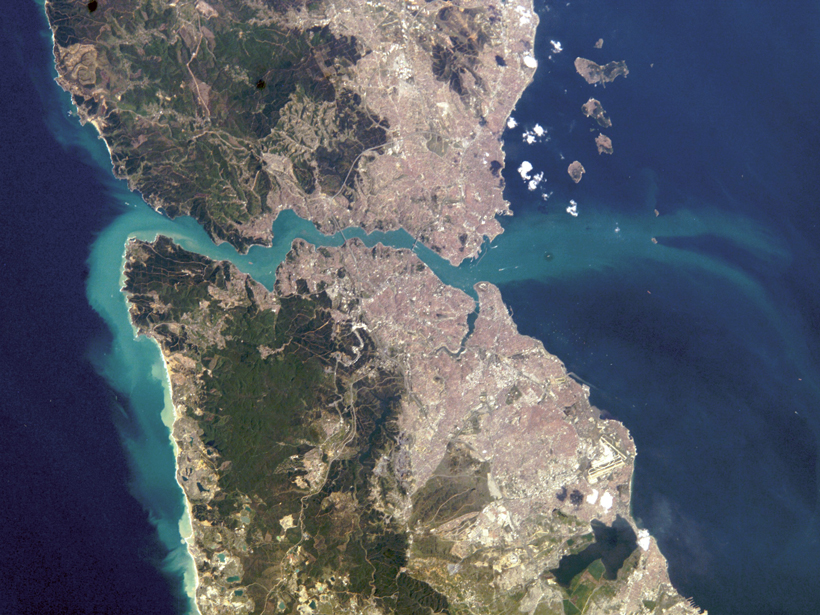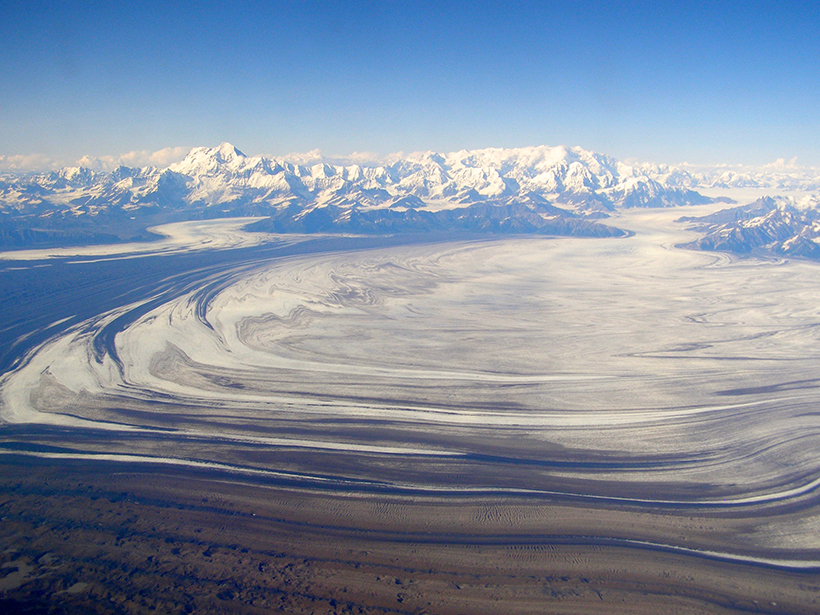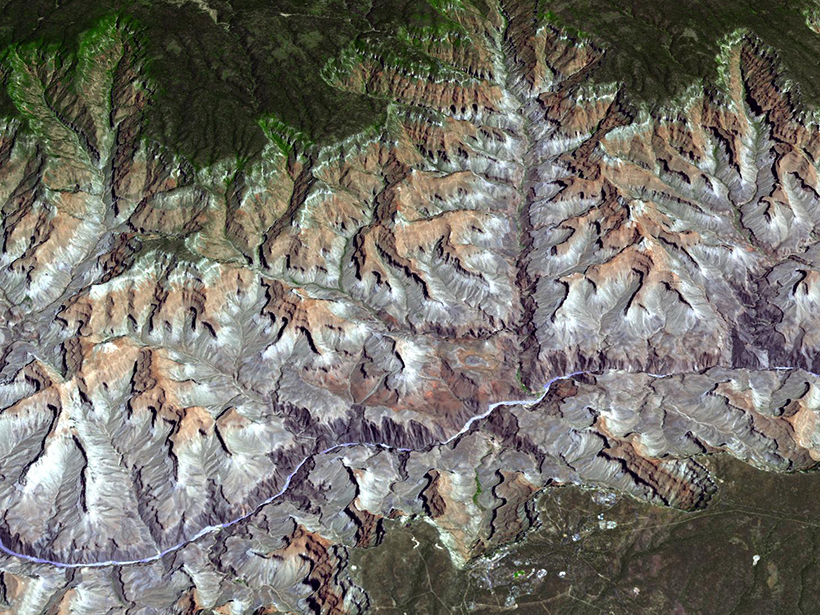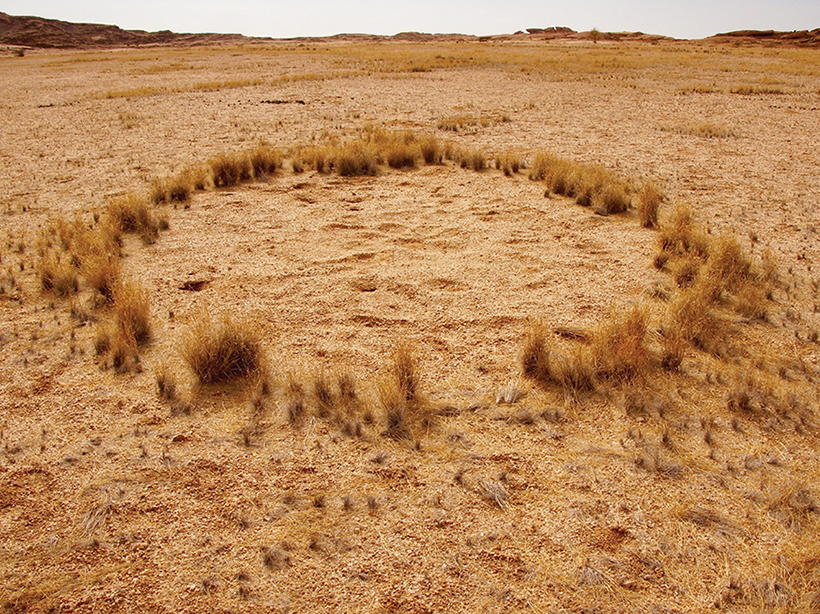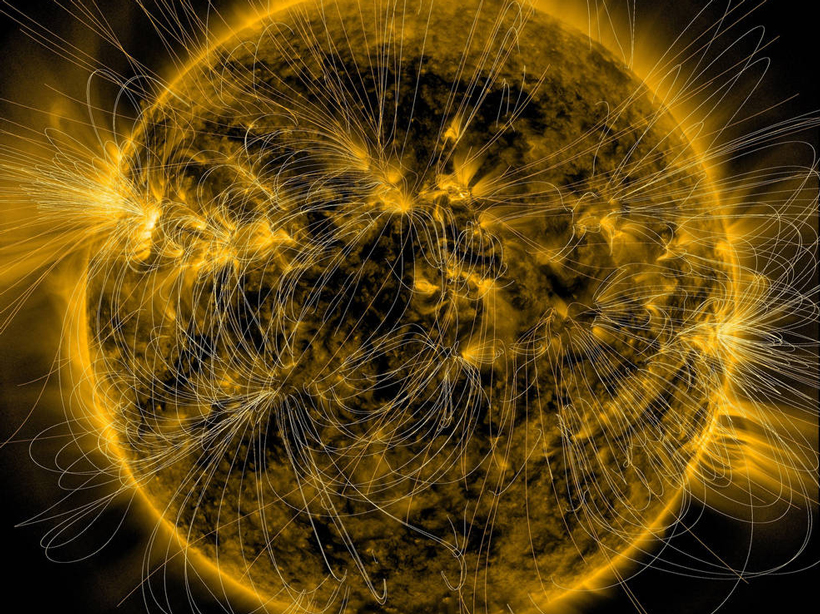For the first time, scientists provide a sea-wide view of what happens to Mediterranean waters that flow into the Black Sea through the Bosporus Strait.
Research Spotlights
Research spotlights are plain-language summaries of recent articles published in AGU’s suite of 24 journals.
For Magnetic Reconnection Energy, O—not X—Might Mark the Spot
A new analysis of satellite data could upend conventional wisdom about how solar storms produce their dangerous radiation—not from X-shaped mergers of magnetic field lines but from swirling vortices.
A Mountain Range's History Preserved in Ocean Sediments
Fission track dating core samples from the Gulf of Alaska demonstrates that offshore sediments can be used to reconstruct a mountain range's changing exhumation patterns.
Stream Network Geometry Correlates with Climate
A "big data" analysis of nearly 1 million river junctions in the contiguous United States shows that branching angles in dendritic drainages vary systematically between humid and arid regions.
High Arctic Emissions of a Strong Greenhouse Gas
Isotope data bring scientists one step closer to revealing the microbial processes behind nitrous oxide emission in the tundra.
Mysterious "Fairy Circles" Continue to Enchant Scientists
Researchers revisit an old theory about the ethereal patterns of vegetation that form in some arid landscapes.
Explaining Unexpected Twists in the Sun's Magnetic Field
New research shows how the Sun's magnetic field can shift when it approaches Earth, which can throw off space weather forecasts.
Looking Up: Taking Photos May Improve Climate Models
Snapshots of clouds taken from the ground reveal orders of magnitude more detail than satellites.
How the Deep, Cold Currents of the Labrador Sea Affect Climate
Seventeen years of ocean current data link global atmospheric and oceanic circulation.
What Regions Are Most at Risk for Ice Loss in East Antarctica?
Scientists model the impact of environmental warming on ice drainage basins in the less studied East Antarctica.

